#grant wood
Explore tagged Tumblr posts
Text

The Spotted Man (1924), Grant Wood
300 notes
·
View notes
Photo

Grant Wood
560 notes
·
View notes
Text
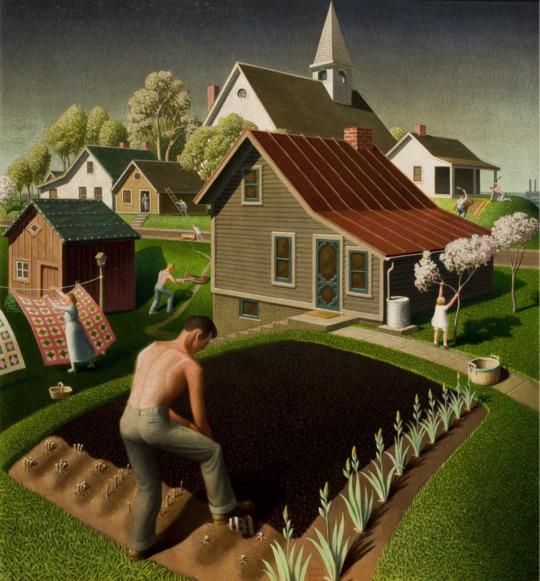
Spring in Town, 1941. Grant Wood. Oil on wood.
924 notes
·
View notes
Text
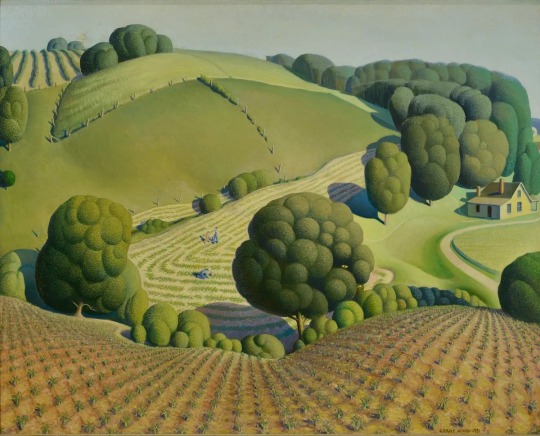
Grant Wood (February 13, 1891 – February 12, 1942), Young Corn, 1931.
162 notes
·
View notes
Photo
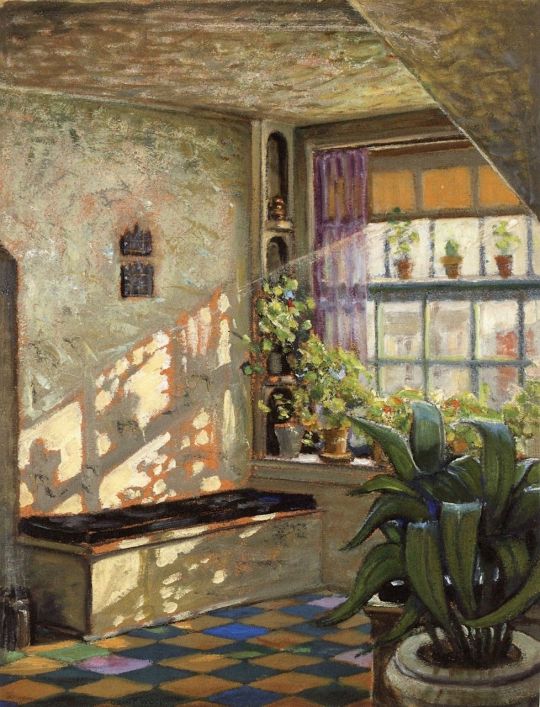
Sunlit Studio - Grant Wood , 1926.
American , 1891 - 1942
Oil on board, 38.42 x 50.17 cm
784 notes
·
View notes
Text

Death on the Ridge Road
Grant Wood
1935
121 notes
·
View notes
Text

Danish Gothic
Ref: “American Gothic” by Grant Wood

#vinland saga#vinland anime#american gothic#grant wood#parody art#parody#vinland fanart#vinland saga fanart#thorfinn fanart#thorfinn karlsefni#thorfinn#einar#thorfinn and einar#anime#anime art#anime fanart#fanart#obliviani#oblivianiart#painting reference#painting redraw#famous art
64 notes
·
View notes
Text

American Gothic by Grant Wood
39 notes
·
View notes
Text

Midnight Alarm (1939), Grant Wood
222 notes
·
View notes
Text
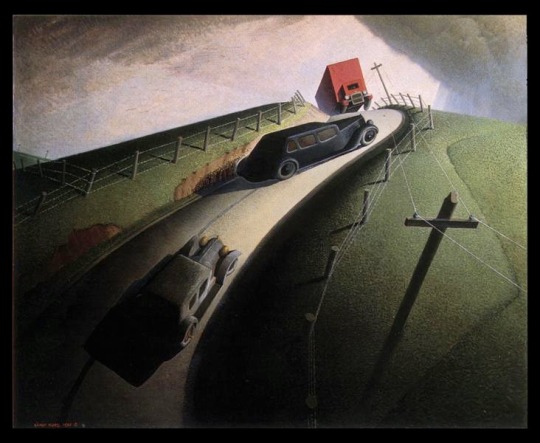
Grant Wood
Death on the Ridge Road
1935
#grant wood#regionalist#regionalist painting#regionalism#american regionalism#american art#american artist#american painting#american painter#landscape#landscape art#landscape painting#automobile#car art#car painting#modern art#art history#aesthetictumblr#tumblraesthetic#tumblrpic#tumblrpictures#tumblr art#aesthetic#beauty
99 notes
·
View notes
Text
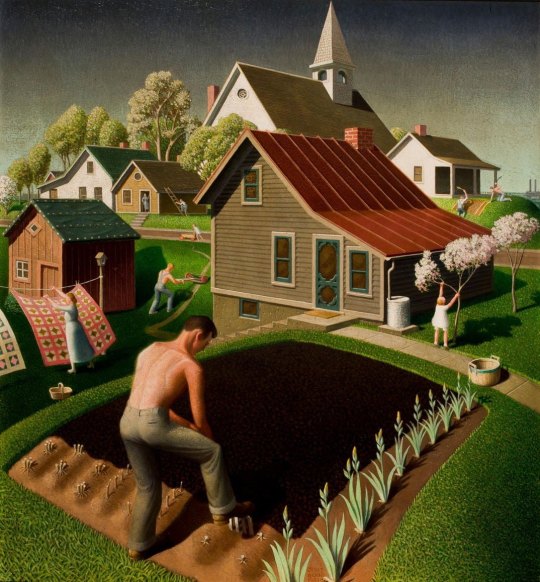
Spring in Town (1941), Grant Wood
410 notes
·
View notes
Text

Grant Woods American Gothic painting 1930 . The two models are Grant Woods sister ( Nan Wood Graham and Dr Byron Henry McKeeby ) Mckeeby was actually Woods dentist. Those happy smiling faces can't help but draw you in to this classic painting 😁
#american gothic#paintings#painting#historical#historical photos#historical photo#historical pictures#pictures#history#artwork#art#famous paintings#classic painting#farm#great paintings#american artist#american art#american culture#artists of America#well known paintings#artistic#artist#grant wood#artworld#artists on tumblr#museum#art exhibitions#famous photo#art history#history in pictures
25 notes
·
View notes
Text

American Gothic (1930) painted by Grant Wood. American Gothic is considered to be one of the most famous paintings in American Art, and one of the few images to reach the status of widely recognized cultural icon, comparable to Edvard Munch's The Scream or Leonardo da Vinci's Mona Lisa. While the title American Gothic refers to the architecture of the house, which is a cottage located in Eldon, Iowa, the models are actually Grant Woods sister Nan and his dentist Dr. Byron McKeeby. While many would think it represents a farmer and his wife, it's actually a farmer and his spinster daughter. This detail was insisted on by his sister since if she was the "wife" it would mean she looked older than she thought she did. While Wood was married for a short time, it was considered to be a mistake by many who knew him. While he was deeply closeted, many of his friends knew him to be homosexual and a bit facetious in his masquerade as an overall-clad farm boy.
63 notes
·
View notes
Text

“𝐶𝐿𝐴𝑅𝑂𝑆𝐶𝑈𝑅𝑂” 𝑏𝑦 𝑆ℎ𝑖𝑛𝑖 𝑃𝑎𝑟𝑘 (𝟤𝟢𝟤𝟢).
#dark aesthetic#aesthetic#dark#dark academia#american gothic#Grant Wood#goth aesthetic#photography#shini park#claroscuro#chiaroscuro#beauty
45 notes
·
View notes

